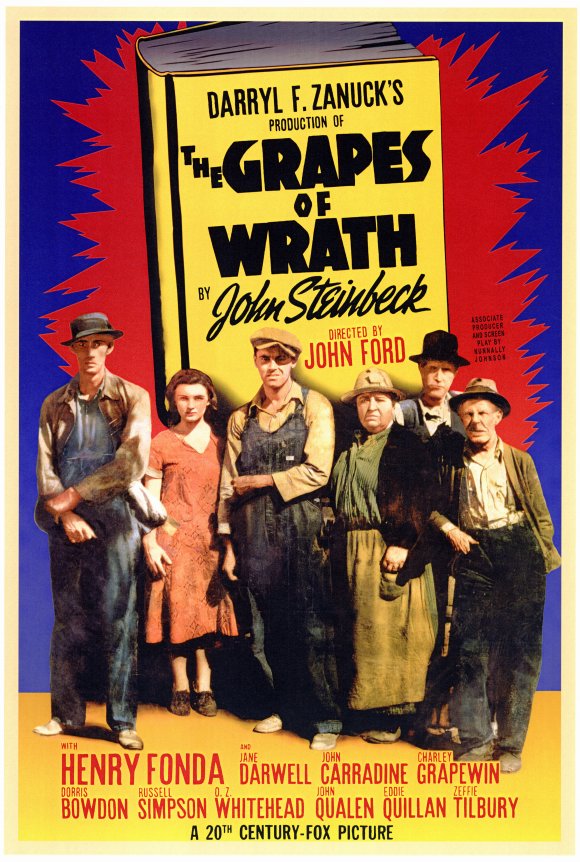#21 / #23
Winner of 2 Academy Awards
The Joads lose their Oklahoma farm during the Great Depression and make the arduous worker to California to become migrant farm workers.
Eddie: This is one of the bleakest movies on the list. It's black and white cinematography has more charm and sunshine than the story or any of its characters, and that's barely any sunshine to begin with. Henry Fonda does a good job playing Henry Fonda, looking like a hurt puppy while staring past the camera. The real gem is Jane Darwell, who plays Ma Joad. Her character holds the family together, and her performance holds the film together.
One thing I took away from the movie is a sense of perspective. If this is an accurate depiction of the Great Depression, which I'm sure it is, then the so-called Great Recession is nothing more than a rainy day in June compared to the decade-long hard times of the 1930s. I mean, I've faced unemployment, but I've never had to bury my grandfather on the side of the highway.
Sarah: This, like NETWORK, is a film that is just as relevant today as it ever was. Sure, things are not nearly what they were in the 30's, but how can someone watch this film and then say that unions are bad?
This film is a showcase of masterful performances all across the board (Ma Joad was my favorite) so if you just focus on that, maybe you can watch this movie without it sucking away all of your energy and hope.
Why You Should See It: Ma Joad packs up her mementos, choosing which to keep and which to leave behind. She says so much in this moment without any dialogue.
Why You Should See It: Ma Joad packs up her mementos, choosing which to keep and which to leave behind. She says so much in this moment without any dialogue.







